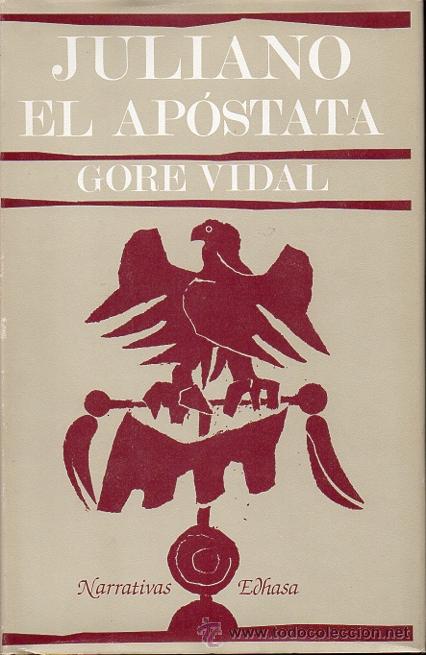Translated from the dustcover in Spanish:
Julian has often been considered in the history of Europe “a hero of the resistance”: resistance to Christianity in the name of Hellenism. But what fascinates in this outstanding historical novel is not only the uniqueness of the emperor, but the extraordinary age in which he lived, the fourth century C.E.
During the fifty years between the accession to the throne of Constantine the Great and Julian’s death at thirty-two years old, it began the agony of an Old World and the birth of a New One in the shadow of the Goths and the Cross.
For better or for worse, we are heirs of that time. Julian, philosopher, military genius, was one of the first to oppose Christian absolutism—a religion that refused then, as for centuries has refused, to tolerate any other belief system aside from its own. But Julian never persecuted anyone. He always preferred the methods of reason, persuasion, and even satire. Through peculiar religious ideas he tried to organize rituals, superstitions and magical practices in a Hellenistic church, and of course failed.
Had Julian succeeded, or had he not died (or martyred? —see my previous entries) so young, perhaps the history of Europe would have been different, and Christianity only one among other religions of the West. But the Christians, the “intellectual barbarians” conquered civilization and called it pagan and decadent.
Our problem now is that we are children of the barbarians and not of the civilized; and we are finally beginning to understand that there are other values besides the barbarian ones preached by Paul.

One reply on “Vidal’s “Julian””
Gibbon’s account of Julian is breathtaking. I remember when I was reading it, I had to put the book down and rush into the neighboring room to recount the whole story to my mother and sister. He was the sort of hero one expects to find only in fantasy novels – but he is evidence the (near) ideal can be flesh.
(It’s too bad he had little interest in women, and was a vegetarian. And, of course, a bit TOO prone to lead from the front.)